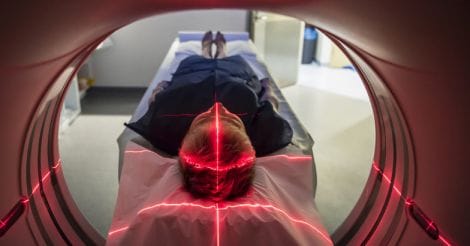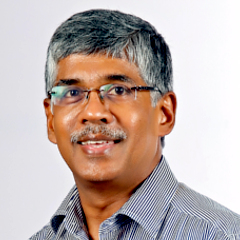I have come to a very sad conclusion, after spending almost my entire life dealing with diseases of the heart. A significant majority of referring doctors will not send a patient to a cardiologist or surgeon, unless they receive a “kickback”.
Fee-splitting is the practice of sharing fees with professional colleagues in return for being sent referrals. Kickbacks and fee-splitting are different words for the same sordid practice. A “kickback” involves the payment to or from a physician in exchange for a referral, while “fee-splitting” involves splitting the physician’s fee derived from the patient between the physician and a third party. This is also referred to as “cuts” (the referring doctor getting a “cut” from the patients bill), and is sugar-coated in such terms as “medical management fees” or “listing fees” or “consultation fees” - if it ever ends up being shown on patients bills.
Read also: Should I treat my cholesterol? The controversy over statins
Losing weight is not just about will power
Things you can do to reduce the risk of a heart attack
The sad and depressing part is that this practice is almost universal in our country, even among our biggest hospital chains. Institutions employ public relations officers, whose sole job is to visit local physicians and private practitioners, and encourage them to refer patients to their hospitals, in return for a fee. (Of course, it was universal knowledge that pharmaceutical companies and manufacturers of medical appliances and devices would give doctors gifts, all-expense-paid family holidays, and stay in five star hotels during conferences or vacations, in return for using their products). This is unequivocally unacceptable. Both morally, and by law. Basically, such doctors are really agents for procuring patients for the specialist.

And an extension of this unscrupulous practice, is the referral of patients to particular laboratories or radiology clinics, where only reports or X-Rays from that particular lab (or clinic) is acceptable to the doctor. You can be sure the lab is paying a commission to the doctor for referring patients to them for their tests.
The Medical Council of India, in its code of ethics, explicitly forbids fee-splitting. This constitutes “unethical acts” under their code of conduct, and offenders can be punished by being fined and/or being struck off the medical register, and their license to practice revoked.
I quote below the the code of ethics of the Medical Council of India – Rule 6.4.1:
“A physician shall not give, solicit, or receive nor shall he offer to give solicit or receive, any gift, gratuity, commission or bonus in consideration of or return for the referring, recommending or procuring of any patient for medical, surgical or other treatment.”
And the next rule is even more explicit.
Rule 7.19 states, “A physician shall not use touts or agents for procuring patients.”

But like every law in India, these laws too are openly and blatantly violated. And sadly, by members of our noble profession. Today, medicine has become a business. Doctors pay lakhs of rupees (or even crores for a super-specialty degree) to get admission into a private medical college, and they have to make that money back. And in the process of earning higher profits, conscience takes a back seat. So they resort to these unprincipled means.
Read also: Coronary artery bypass operations: the basics everyone needs to know
Here's why you need to eat less sugar, not less fat
Back in 2014, in the British Medical Journal, Dr David Berger had highlighted some of these problems of corruption in the medical fraternity in India. Regretfully, nothing has changed.
In a very recent Indian Medical Association survey (mainly relating to violence against doctors), only 17% doctors felt that fee splitting was unethical.
Therein lies the problem. The vast majority of doctors don’t consider this illegal – in spite of clear laws laid down by the Medical Council of India, not to mention the immorality of these practices.
General practitioners initially started using this in group practices, where they would employ a part-time specialist, and refer patients to that doctor for his expertise in that field. The specialist would then get a “cut” of the fee charged by the clinic or hospital, for every patient he saw or operated in the clinic. This allowed these group practices to have specialists available, with no supplementary expense involved in paying the salary of this additional specialist being available in their practice. And it provided a one-stop shopping experience for the patient. This much is surely acceptable.
But to “refer” a patient to a hospital, in return for remuneration, without being involved in any further treatment of this patient, is simply unacceptable.
Besides adding to the cost of the patients bill, this custom has several other downsides.

Firstly, the patient may not be referred to the best and most competent or the most appropriate specialist, but to the doctor or hospital who is willing to pay the most “cuts”. Secondly, and importantly, this encourages unnecessary referrals (and by extension, unnecessary investigations, and even surgeries) on patients, who may not actually need them. This also generates rivalries among doctors of the same speciality, and unnecessary criticism of competing specialists among themselves. Unfortunately, doctors too are also notorious for denigrating and disparaging their colleagues who are in their same speciality. And finally, this transaction is done mainly as cash payments, adding to the cancer of black money that has pervaded every aspect of our existence in this country, this menace gnawing at our very foundations.
Are you surprised then that patients don’t trust doctors? Are you astonished that occasionally, patients resort to violence against doctors?
When patients are referred to a specialist, they don’t know whether they need his opinion in the first place, whether they need the tests (or operation) this specialist has prescribed, and whether his advice is based on the amount of money he can generate from the patient.
Unless we collectively decide that we, as doctors, will not resort to this practice of paying “cuts”, unless and until the laws are strictly enforced, unless we severely punish those involved in these nefarious practices, and unless we agree to stand courageously by our convictions, - even if it means treating less patients, (and thus making less money), this cancer will never be cured.
The bottom line is that referrals must not be induced by considerations other than the best interests of the patients (i.e. by promise of financial remuneration).
Trust is built, when someone is vulnerable, and not taken advantage of.
As they say, “The glue that holds all relationships together – including the relationship between the leader and the led – is trust.”
And trust is based on integrity.
(The author is a former head of the department of cardiothoracic surgery at Christian Medical College and Hospital, Vellore. He is currently the chief administrative of icer, and head of the cardiothoracic surgery department at Pushpagiri Heart Institute, Tiruvalla.)

























 Representative images: Getty Images
Representative images: Getty Images